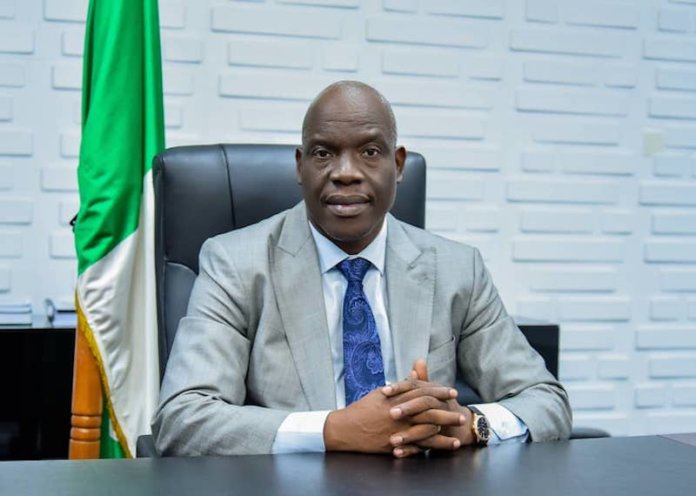Chief Executive of the Nigerian Upstream Petroleum Regulatory Commission (NUPRC), Gbenga Komolafe, has disclosed that oil theft in the country has reduced to about 5,000 barrels per day at the end of Q4, 2024, from a high of up to 108,000 bpd in Q1 of 2022.
He disclosed this while speaking at the ‘Renewed Hope Global Town Hall Conference’ held in Abuja.
Komolafe stated that due to the renewed onslaught on oil theft, crude production in Nigeria now averages 1.75 million barrels per day, with gas production now hitting 7 billion standard cubic feet per day (scfd).
“Oil theft averaged 108,000 bpd in Q1, 2022 resulting in the shutdown of trunklines (TNP, TFP, NCTL etc). Production dropped to as low as l million bpd in September 2022 (loss of c. 600, 000 bpd) due to the shutdown of the trunk lines.
“Oil theft has significantly reduced due to the ongoing kinetic and non-kinetic intervention by the government. The oil theft which averaged about 12,000 bpd in the last 24 months further reduced to 5,000 bpd in the last quarter.
“Whereas the production fluctuated around 1.5 million bpd, the sustained fight against oil theft has resulted in steady increase in production. We were able to restore and sustain the production to 1.7 bpd. Efforts are ongoing to increase the production by l million bpd by December 2026,” Komolafe stated.
The CEO highlighted the need for a paradigm shift to position Nigeria as a leader in energy security and economic growth, highlighting several reforms and achievements in Nigeria’s oil and gas sector.
On Nigeria’s oil and gas potential and global positioning, he noted that Africa accounts for five of the world’s top oil-producing countries, and that the country stands as the continent’s second-largest oil reserve holder.
Komolafe further stated that Nigeria has the largest gas reserves standing at 209 Trillion Cubic Feet (TCF), with oil reserves estimated at 37.5 billion barrels.
According to him, since the enactment of the Petroleum Industry Act (PIA) in 2021, the commission had driven several initiatives to enhance regulatory effectiveness and attract investments.
The commission, Komolafe said, unveiled its 10-year regulatory and corporate strategic plan (2023–2033) in May 2023, followed by a regulatory action plan for 2024, detailing key industry reforms.
These reforms, according to him, focus on increasing oil and gas reserves and production, enhancing hydrocarbon accounting transparency and achieving cost efficiency and decarbonisation in upstream operations.
The NUPRC boss also noted that the reforms were ensuring stability in host communities, and reducing the carbon footprint of oil and gas activities.
On the 2024 licensing round and investment drive, Komolafe highlighted that NUPRC launched its 2024 round, offering 24 oil and gas assets to investors, explaining that to attract global participation, the commission held roadshows in Houston, Miami, London and Paris, showcasing Nigeria’s energy potential.
He said the government aims to increase production by 1 million bpd by December 2026 under the ‘Project 1 MMBOPD Initiative’, leveraging collaboration among operators, service providers, financiers and host communities.
He further assured that the Nigeria Gas Flare Commercialisation Programme (NGFCP), project remains at the forefront of the country’s energy transition strategy.
He programme, he pointed out, aims to eliminate routine gas flaring, reduce methane emissions, and encourage carbon capture technologies.
Additionally, the carbon credits earning framework, he stressed, seeks to monetise decarbonisation efforts while promoting sustainable energy practices.
Giving a brief on revenue growth and financial performance, coupled with industry challenges, he mentioned that NUPRC has consistently exceeded revenue targets. In 2024, the commission, Komolafe said, outperformed its budgeted revenue collection by 84 per cent, marking a strong financial performance for Nigeria’s upstream sector.









